World Oceans Day reminds us that caring for the sea is not an option, but an urgent necessity. From the Galápagos Islands—a place renowned for its unique biodiversity—the Charles Darwin Foundation raises its voice to protect the marine ecosystems that sustain life on Earth.
This year, that voice resonates louder than ever at the United Nations Ocean Conference (UNOC3) in Nice, France. Our participation reaffirms CDF' commitment to science, conservation, and collective action to save the oceans.
A Natural Laboratory Under Threat
The waters surrounding Galapagos are a refuge for species found nowhere else in the world. However, these natural treasures face serious challenges such as climate change, pollution, unsustainable fishing, and invasive species. That’s why, at the Foundation, we work every day on multiple fronts:
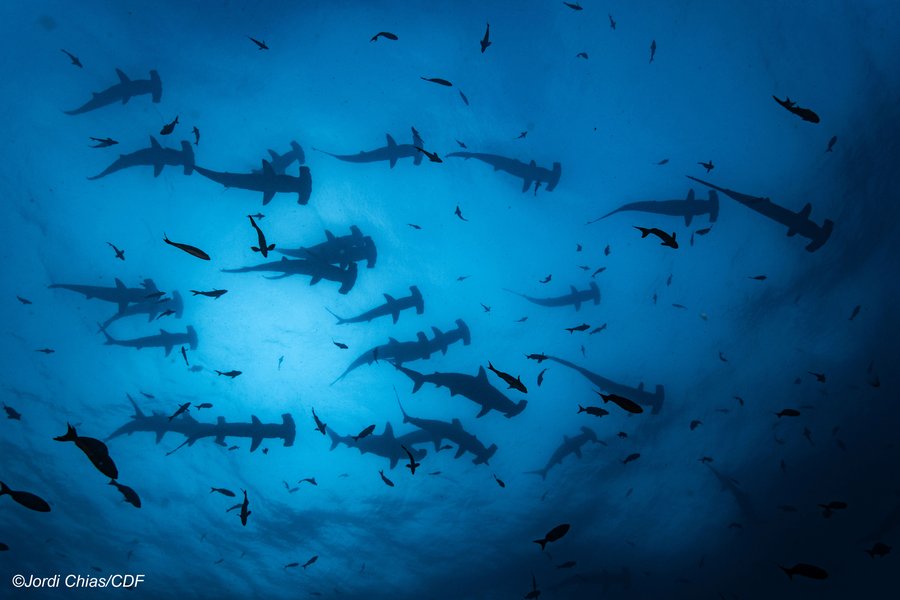
Shark Ecology and Conservation
Iconic species like the hammerhead shark, silky shark, and blue shark depend on migratory routes that cross international borders. Thanks to satellite tracking, we’ve documented these paths and advocated for regional policies that ensure their protection beyond marine protected areas.
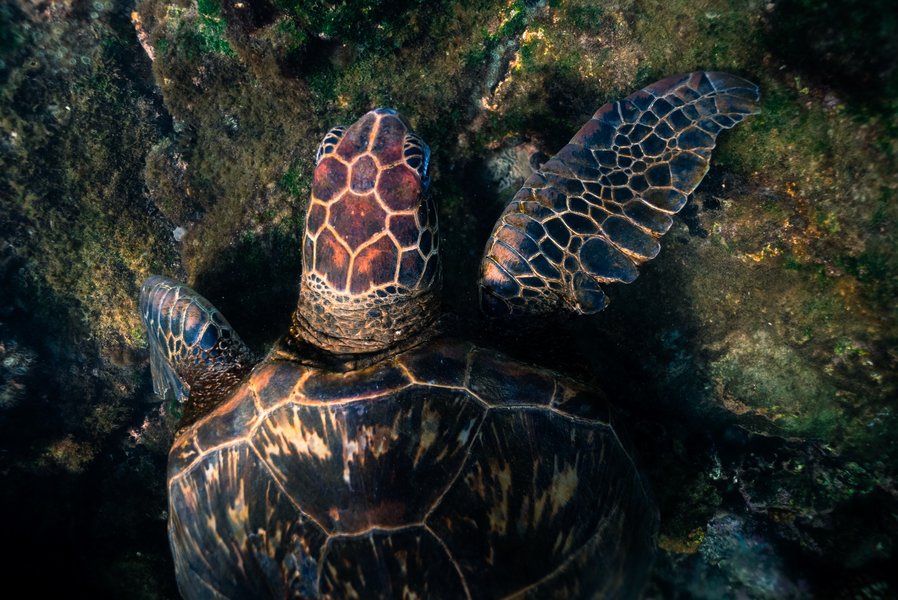
The Pacific green turtle faces threats such as habitat loss and pollution. We protect nesting beaches, monitor populations, and rehabilitate injured individuals. Every turtle that returns to the sea is a small victory for the ocean.
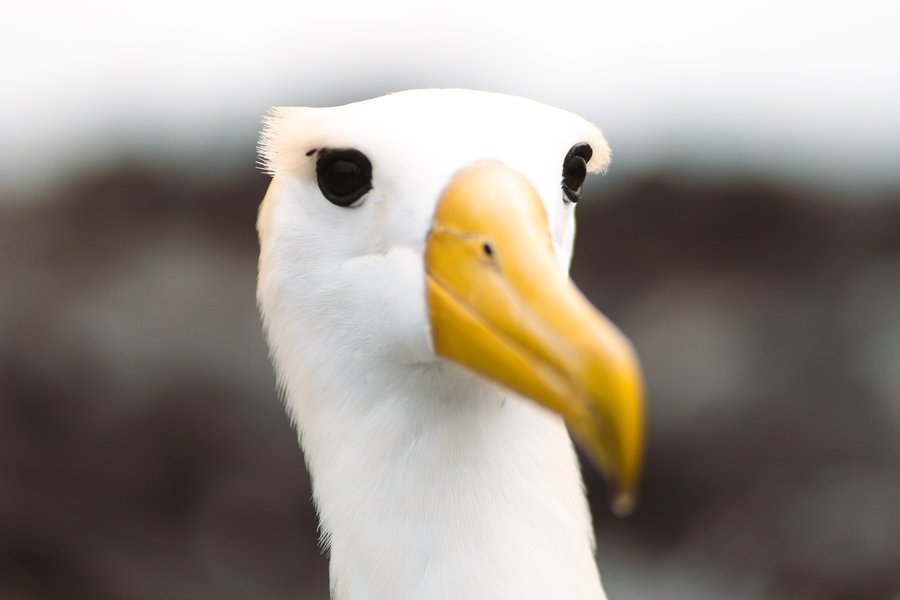
We study species such as the blue-footed booby and the Galápagos albatross, whose populations reflect the health of marine ecosystems. We assess their conservation status and work to reduce threats such as bycatch and invasive species.
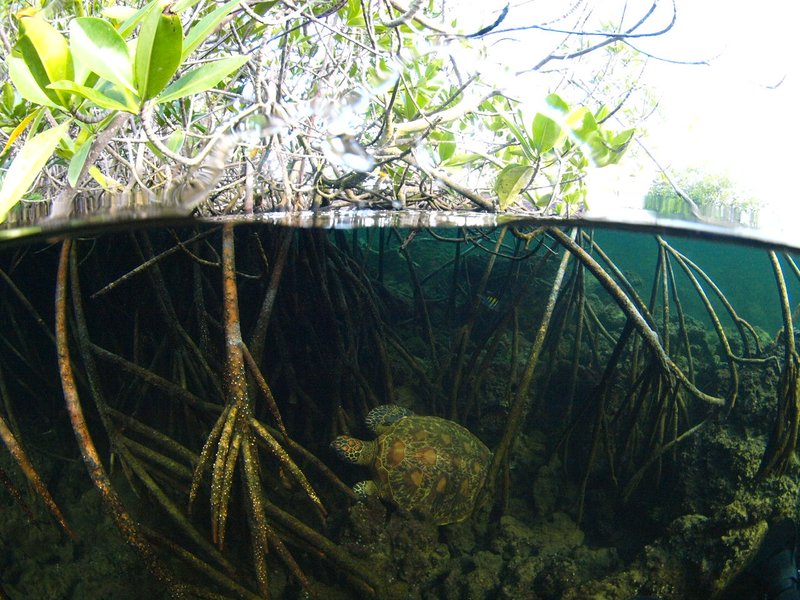
Mangrove Ecology and Climate Change
Mangroves serve as natural storm barriers and nurseries for fish and crustaceans. We research their status in Galápagos and promote their restoration, recognizing their vital role in climate resilience.
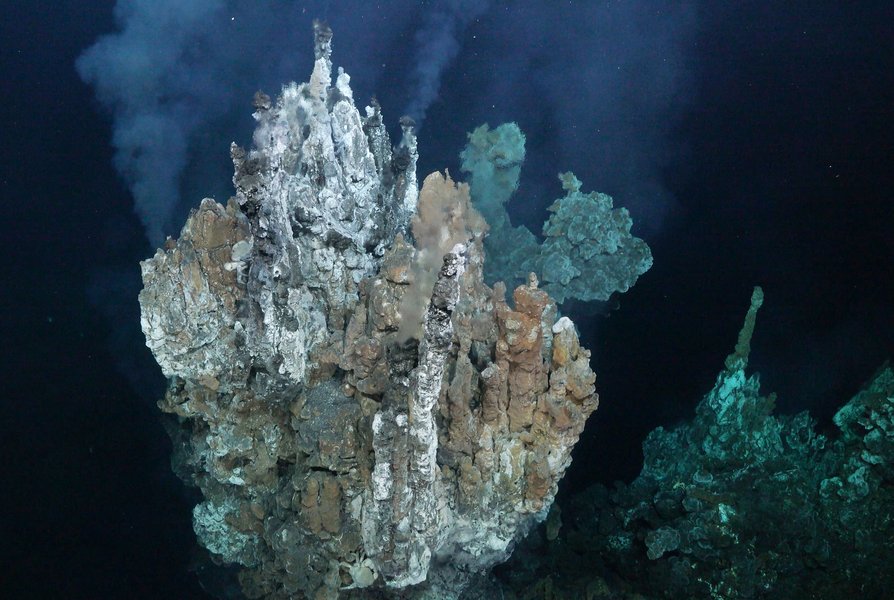
Deep-Sea Exploration and Conservation
The deep ocean hides species yet to be discovered. In collaboration with international partners, we explore underwater mountains and deep coral reefs in the Eastern Tropical Pacific. Each new discovery strengthens our mission: to protect even what we have yet to uncover.
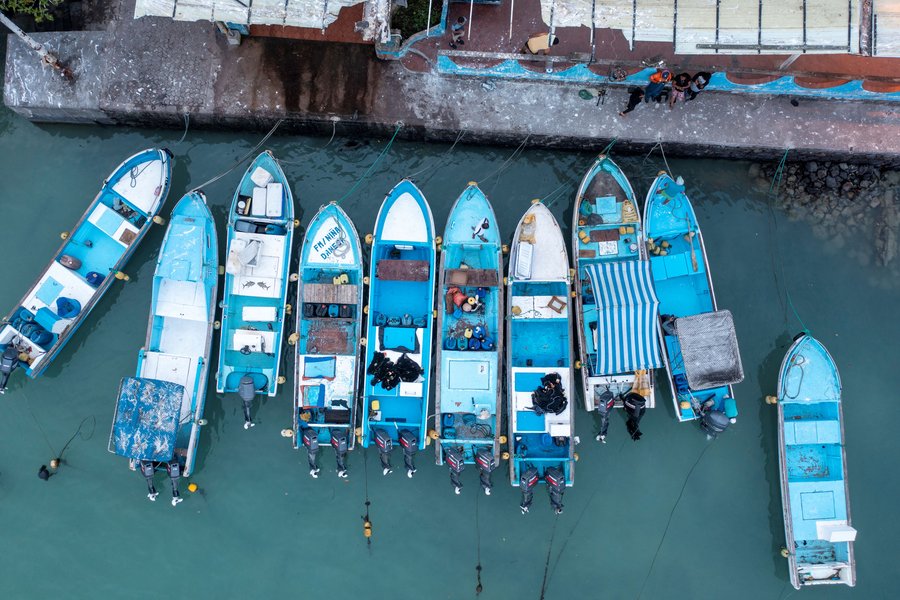
Sustainable Fisheries for Resilient Communities
Artisanal fishing is a vital source of income and food for local communities. We promote sustainable fishing practices that protect marine populations and ensure fisher well-being. We've developed methods to determine sustainable harvest levels for species such as spiny lobster and sea cucumber, preventing overexploitation and safeguarding food security.
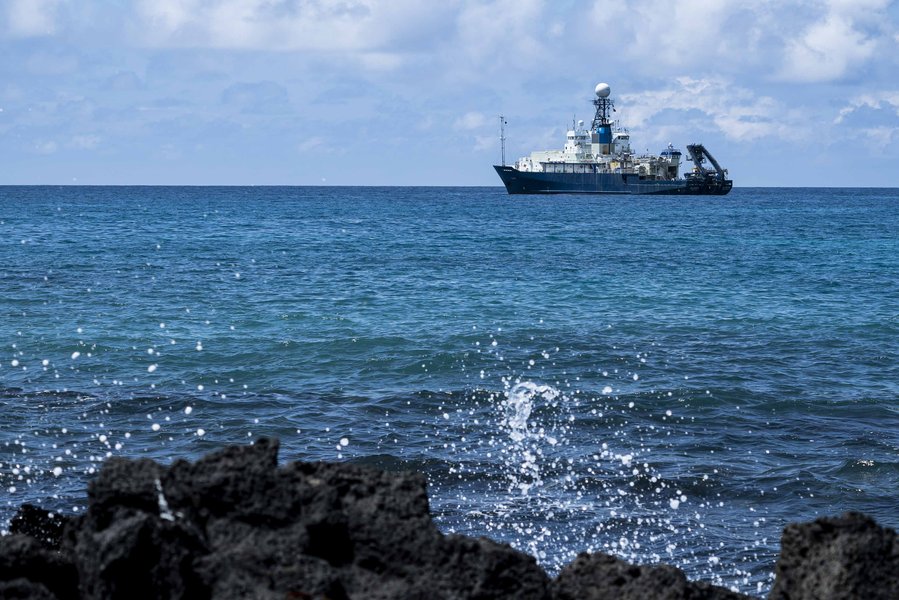
We work closely with local authorities and communities to strengthen marine governance. This includes developing policies based on scientific evidence, implementing marine protected areas, and promoting community participation in decision-making related to marine conservation.
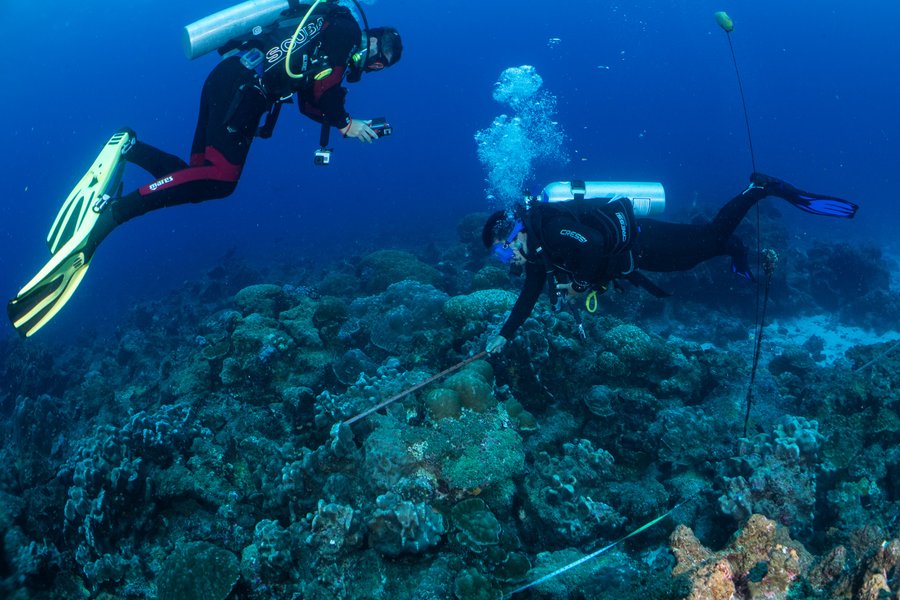
We conduct in-depth studies of Galápagos marine biodiversity, cataloging species and monitoring changes in marine communities. This information is crucial to understanding the impacts of climate change and other threats and to developing effective conservation strategies.
From Galápagos to UNOC3: A Message for the Planet
At UNOC3, we bring these experiences to the global stage. At the Charles Darwin Foundation, we have a clear purpose: to care for the ocean—source of life and home to unique biodiversity. We believe that with science, local knowledge, and innovation, true and lasting protection is possible.
Our commitment to the global 30x30 goal is firm: to protect at least 30% of the ocean by 2030. Because the future is built from the sea—and there’s still time to act.
Join Ocean Conservation from Anywhere in the World
Today, more than ever, your support is essential. Discover how you can be part of the change: with a donation or by adopting a marine species, you help us continue researching, educating, and protecting the oceans that give us life.




